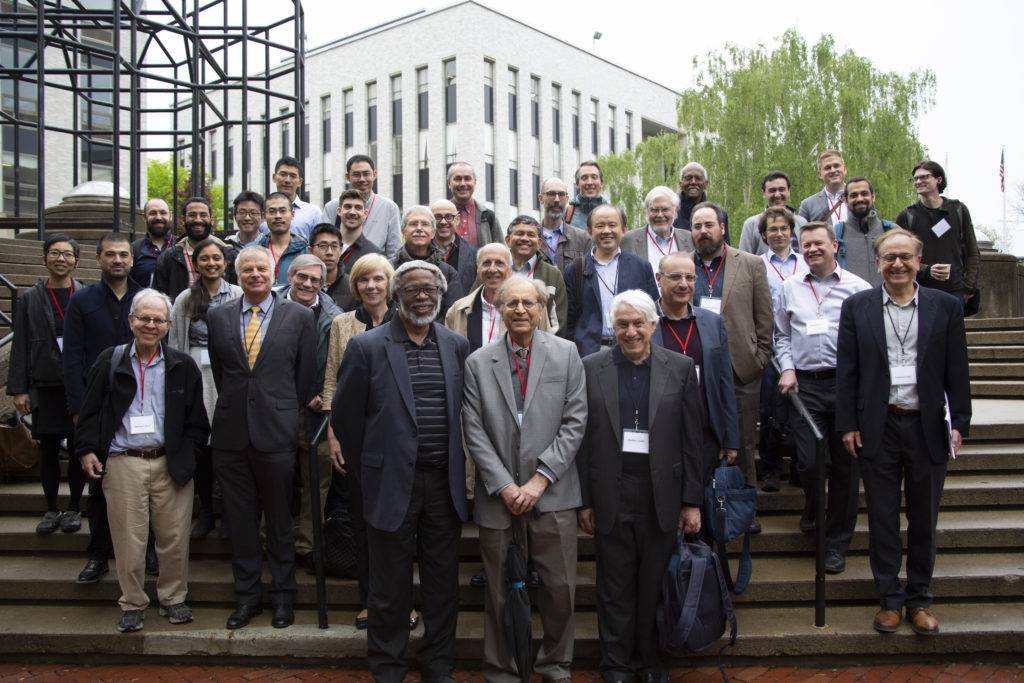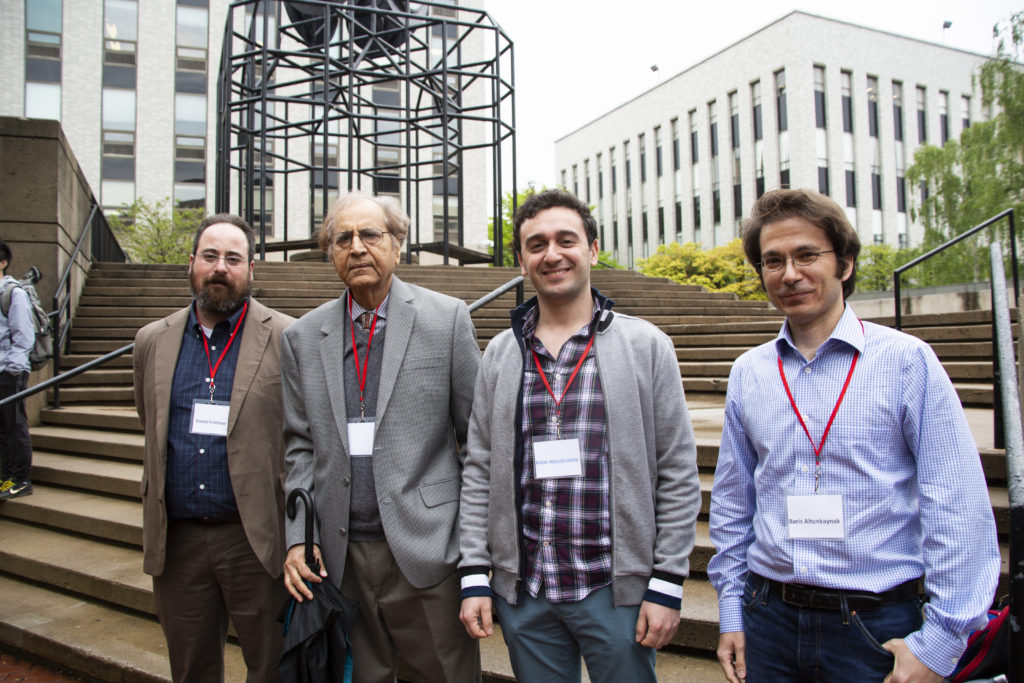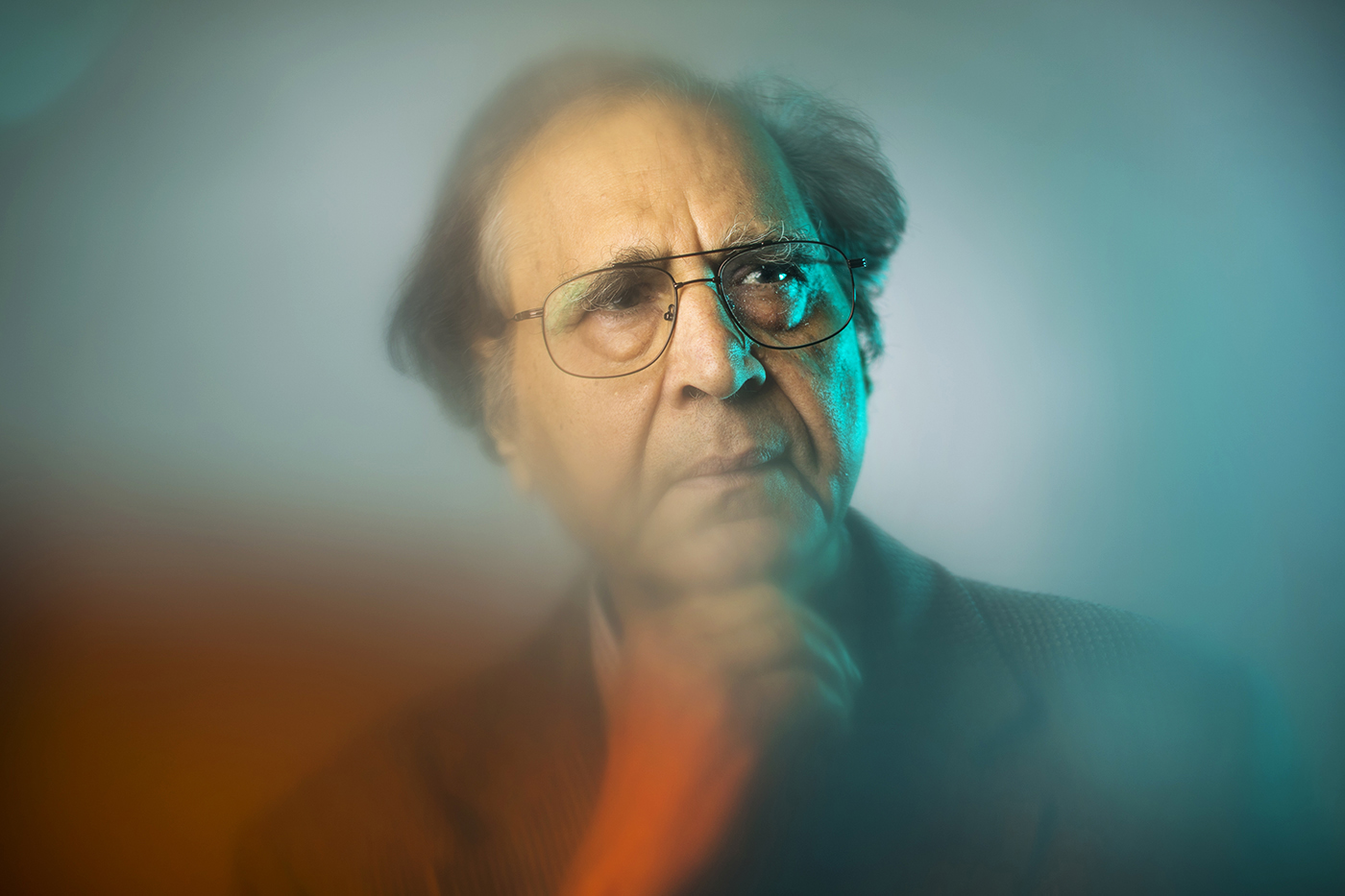Story updated on May 20th, 2019 with photos.
What do you get a world-renowned physicist to celebrate his 80th birthday? A cake? A sweater? A good book?
Physics professors at Northeastern believed that those gifts fell short of capturing the essence of their colleague Pran Nath, so they decided to throw him a conference focused on the latest research into particle physics and cosmology.
“I knew that would make him happy,” says Tomasz Taylor, a physics professor at Northeastern who is chairing the conference. “Apart from being an extraordinary scientist, he is also a fantastic human being. He’s always interested in new developments; he’s not slowing down at 80. It’s unbelievable.”

Renowned physicists came from all over to attend “Pran Nath Fest,” a two-day conference at Northeastern, in honor of Pran’s 80th birthday.
Nath, who was hired at Northeastern in 1966, has spent his career trying to uncover the laws of physics that govern our universe. Much of this work has focused on the building blocks of that universe: fundamental particles, such as electrons, quarks, and leptons, and the forces between them.
The current framework for understanding these building blocks, known as the standard model of particle physics, has been repeatedly confirmed by experiments, but it can’t explain everything. It doesn’t incorporate the effect of gravity, which is extremely weak for subatomic particles but incredibly important for larger objects such as stars and planets. And it doesn’t hold up at high energy levels, such as those thought to be present at the beginning of the universe.
“The standard model can only take us up to a certain energy, but we know that fundamental physics started with the Big Bang, or even before, when energies were much larger,” says Nath, who is now the Matthews Distinguished University Professor of Physics at Northeastern. “I want to know what the original laws are. That has been my preoccupation for the last five or six decades.”

The event was not only attended by scholars, but also by Pran’s students.
Nath’s work has inspired experiments at particle physics laboratories around the world. The conference, titled “Modern Trends in Particle Physics,” which will be held Friday and Saturday at Northeastern, will honor Nath’s contributions to the scientific community by bringing together international stars of the field to discuss their work in particle physics and cosmology.
“His work has had a tremendous impact,” says Taylor. “This is an international conference with top-notch world experts, a couple of them in line for Nobel Prizes, and some of the most distinguished physicists from all over the world. And in some way, Pran’s work influenced all of them.”
In 1982, Nath and several colleagues proposed a theory linking gravity with particle physics, called supergravity grand unification. It relies on a principle known as supersymmetry, which predicts that every known particle has a partner particle that hasn’t been discovered yet.
“For our everyday life, we don’t need these extra particles,” Nath says. “But presumably, nature needs them for some very deep reason, and that’s the reason we are trying to explore.”
Nath was at the forefront of the search for supersymmetry, which has both inspired and frustrated physicists for decades. Supersymmetry elegantly fills in the gaps in the standard model and links to other possible theories of the universe such as string theory, but so far, experiments designed to discover supersymmetric particles have come up empty.
Nath hopes the next generation of experiments, done with more powerful instruments and at higher energies, will finally reveal some evidence of these particles. But this will take time.
“Any serious experiment takes a decade,” Nath says. “The stage of physics we are entering, maybe the people who create the theories leave it to the next generation to benefit from them. Our satisfaction is in the intellectual curiosity that drives us.”
Perhaps one of the researchers at the conference will conduct the experiment that shows that supersymmetry does, in fact, describe our universe. But even if that doesn’t happen, Nath’s legacy will continue to shape future experiments and theories posited by the next generation of scientists.
“You always stand on the shoulders of others to look a little farther,” Nath says, quoting Isaac Newton. “And that is an ongoing thing. The more questions you answer, the more questions arise.”
This story was originally published on News @ Northeastern on May 15th, 2019.

